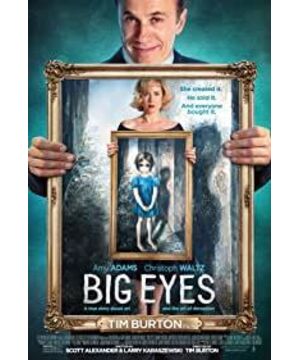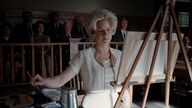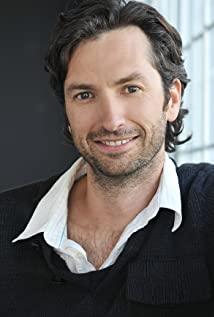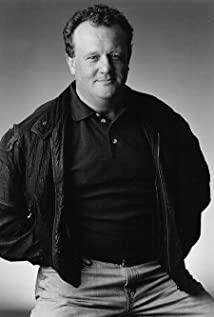Even in a country like the United States that claims to be free and open, female artists in the 1950s were still oppressed, and it was difficult for them to develop independently. Therefore, the United States always accuses women of other countries that they have no freedom, saying that they are always under the oppression of three major mountains (husband power, political power and theocratic power). Say, the whole world is the same.
The first is husband's rights. The whole movie is about how a husband steals his wife's paintings for his own deceit. The wife (Amy Adams) can only paint behind the scenes in an incognito for a long time, leaving her husband (Christoph Waltz) in front of the stage. The husband uses various means to suppress the wife from telling the truth, and over time the wife becomes a painting machine with no personal identity. The big-eyed little girl she painted in the basement is very pitiful, which is the basis for her feelings for her ex-husband's daughter, but when her husband's mouth is turned into, he has personally seen Nazi fascists destroy children of all ethnic groups, and criticizes fascists. High on the topic. Although the husband himself has never been to Europe.
The second is government. The regime generally refers to the social environment that discriminates against female artists. When the wife first tried to test an art critic's opinion of her paintings, the art critic did not think that a female painter could paint any successful works, and the words were full of contempt. The director also ridiculed the artistic environment everywhere. For example, people have no idea what art is, and it is all manipulated by the media and art criticism. Today's fads are Rothko's abstract art and Warhol's pop art, and people are flocking to it, completely ignoring realistic artwork. Tomorrow, the little girl with big eyes turned into an accusation against the Nazis, won the approval of celebrities, and suddenly became a thousand times more valuable. All in all, art is not just art, but more often it is boasting, marketing and commercial operation, which is full of all kinds of lies, discrimination, exchange of interests and the aesthetic blindness of the masses.
Lastly is theocracy. Later, the wife couldn't stand her husband's "exploitation" and finally separated, but the question of "what to do after Nora leaves" also exists in the United States. The wife still has to agree to pay her husband a regular tribute painting in order to divorce as soon as possible. Finally, the missionary opened the door to his wife and taught her to re-examine her life and free herself from slavery. Under Jehovah’s guidance, the wife eventually went to court to sue her husband. The final ending of the movie is as hasty and comical as a TV series. After a story similar to the Bao Gong Judgment case, the legal power under the transformation of theocracy finally returned justice to the wife, labeling the shameless husband a liar.
Although the film's ending is bright and happy, the wife's long-lost laughter is given by theocratic or legal authority. Her new life is still dependent on or subject to the male (Jehovah or the judge), not the female consciousness independent. The final treatment of the film is simple and hasty, but it may also be a reflection of the real situation. Even in the Internet age of the 21st century, when the authoritarian art critics of the 1950s have been laid off and unemployed, and they can no longer make headlines, is the situation of female independent artists better now than they were then? The answer is probably not necessarily.
View more about Big Eyes reviews











